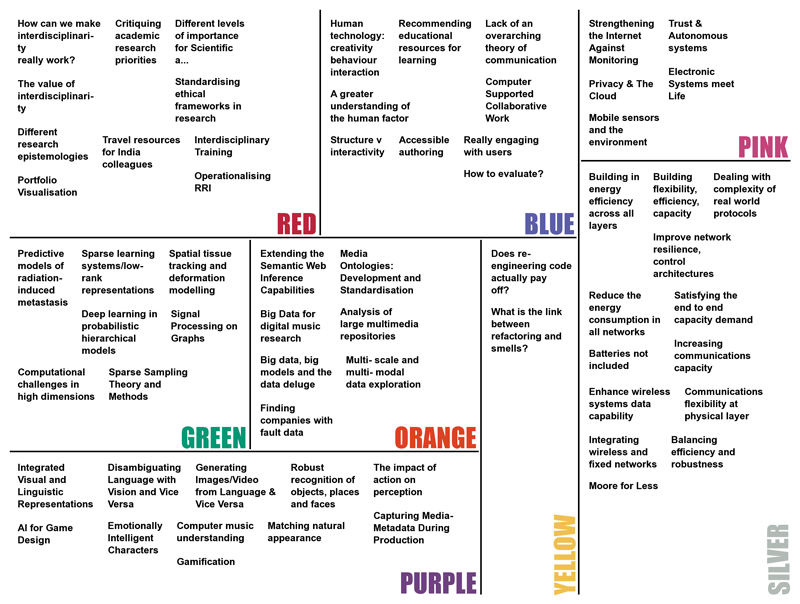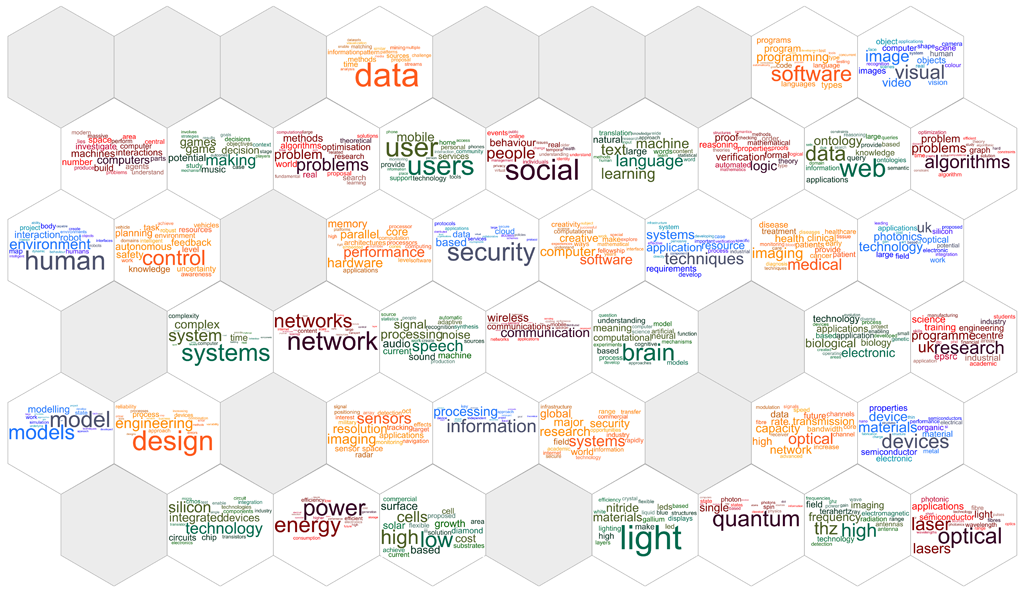KMi professor Stefan Rueger was invited to an EPSRC network-of-networks meeting on 27 March 2014 in his role as coordinator of the Multimedia Knowledge Management research network to help map out the research challenges within EPSRC’s network portfolio.
One interesting aspect of this workshop was that it did not involve the conventional jotting down of challenges on post-it notes followed by a manual collaborative clustering on a large wall space. Instead, each network submitted beforehand three challenges in form of a title and 50-word abstract, which were projected automatically onto a self-organised hexagon map of keywords that came out of an automated algorithm (Latent Dirichlet Allocation) from existing abstracts of the Grants on the Web on EPSRC’s website. These topic maps were created prior to the meeting with tools from http://www.researchperspectives.org. According to EPSRC staff, they provide a different, alternative overview of the current EPSRC Grant portfolio but – as was stressed repeatedly – by no means the only one for EPSRC.
The network-of-networks meeting started off with working groups informed by this automated, data-driven pre-clustering of earlier identified research challenges. The thus "semantically related" colleagues then reasoned about their areas in the challenge-map, identifying common and overarching topics such as, for example, data science and engineering, which is something that KMi has a particular stake in.
Network coordinators independently placed unique stickers onto the hexagonal keyword map to indicate areas of interests within their networks thus creating an immediate visualisation of coverage. As a side effect, this also identified areas in the remit of EPSRC that were not covered by networks. Expressions of interest from different networks in the same areas were taken as promising leads for possible collaboration between research networks, which was then used to structure the remaining networking time.
Even though the data-driven approach to structure the networking workshop was by no means perfect, it seemed to swiftly generate reasonable groupings of interest and promising leads from as little as 50-word abstracts of the challenges put forward by network coordinators. The "ratified" results of this meeting will be published in two weeks time under http://www.researchperspectives.org.



